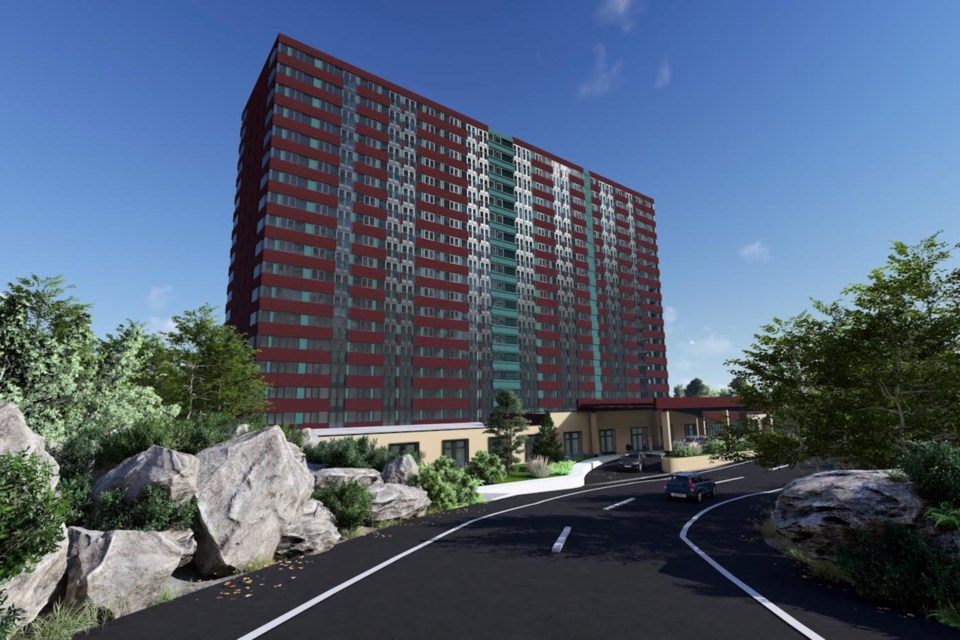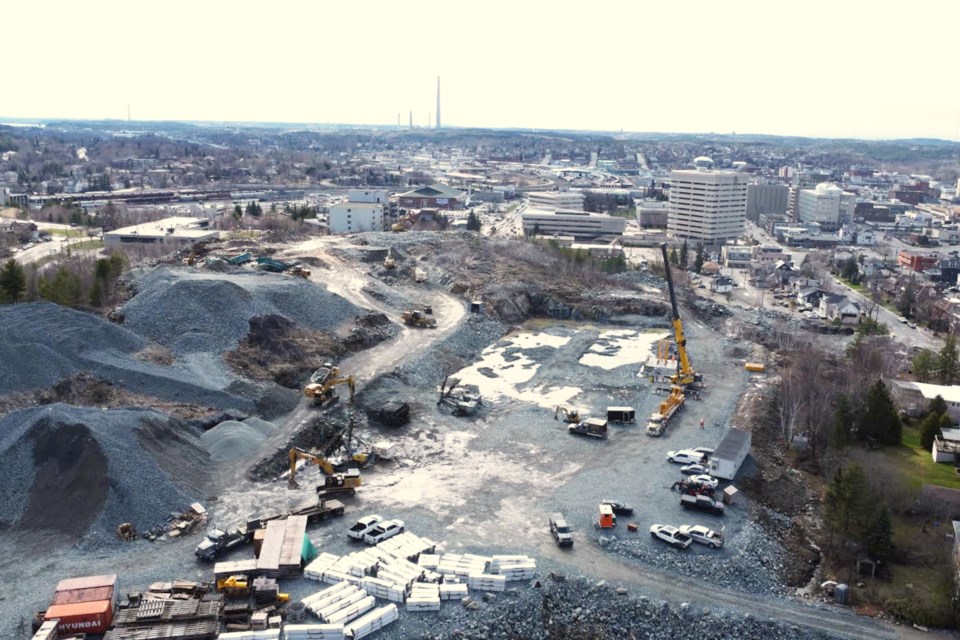In a sight much more common in the Greater Toronto Area, a crane was erected at the eastern edge of downtown Sudbury this week to assist in the construction of Project Manitou.
Mayor Paul Lefebvre had a photo of the crane projected on a screen during Thursday’s annual State of the City address, which was held at the Caruso Club.
“There’s a crane in our skyline, which I think is great,” he said to applause from the audience.
The following is drone footage of the construction site from earlier this week:
Around the time the 347-unit residential building broke ground earlier this year, Lefebvre described the building as “a huge project” the city needs due to its vacancy rate hovering quite low, at around 1.7 per cent.
The development is located on a hill beside where Brady Street curves east of Paris Street. With city hall nearby, blasting for the project has at times startled city council members and staff during recent meetings.
Consultant Todd Robson, representing developer Jack Wolofsky of Kaymic Developments, told Sudbury.com the area is being flattened and cleared where needed.
“The next stage in carrying out the work is the foundation,” he said. “We will begin this work Monday where the areas for the foundation are dug, cleaned and prepped.”
The goal is to begin pouring the foundation next week.
As of Friday, the crane was up and awaiting further permissions from the city to begin operating.
As part of the project, the stairs at the eastern end of Larch Street have been removed for the developer to access a water line that runs underneath. The stairs will be replaced, per an agreement the developer has with the city.
The goal is to have the stairs back up by June, but Robson said it’ll depend on when it’s safe and clear to do so.


The project’s total estimated cost is $110 million, which includes a $70-million repayable loan from the federal government, $3 million in funding from the federal government, and the balance from Wolofsky and a bank loan.
The federal government pledge came as a result of the developer earmarking 105 of the building's 347 units toward affordable housing or seniors, with “affordable” defined as 80 per cent of market rates. The city exempt the project’s development fees.
During the funding announcement, Nickel Belt Liberal MP Marc Serré took note of the lack of provincial funding.
“The federal government and municipalities can’t solve our housing crisis alone,” he said. “We need to make sure we have all three levels of government working together.”
The construction process is anticipated to take two years to complete, Robson said, noting that since they started a few months ago, they’re hoping to have occupancy by spring 2026.
The total project, as approved by city council, consists of a maximum of 826 units divided into two buildings. Phase one of whatever the total project ends up being will be the 347-unit building currently under construction.
Tyler Clarke covers city hall and political affairs for Sudbury.com.